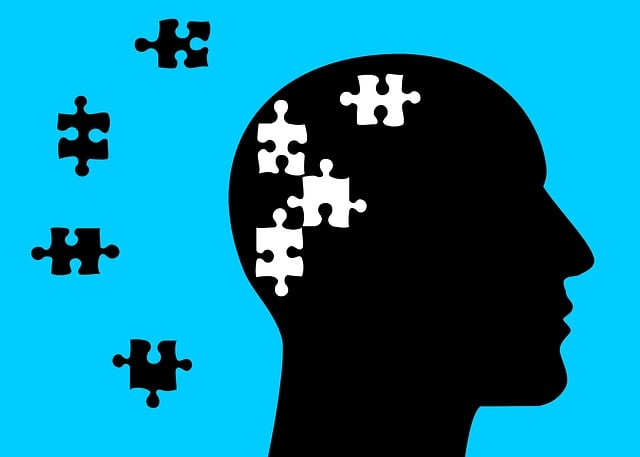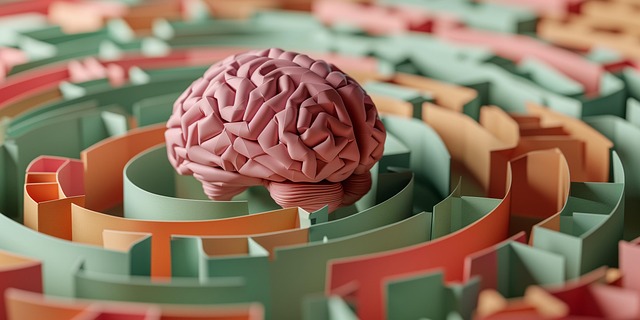Children's trauma from abuse or adverse childhood experiences (ACEs) severely impacts brain development and can lead to lifelong mental illnesses if left unaddressed. Effective therapy, such as play therapy or cognitive-behavioral therapy (CBT), tailored to a child's age and needs is crucial for healing. Mental Health Policy Analysis and Advocacy creates supportive systems, prevents trauma, and promotes healthy development while reducing stigma. Robust risk assessment tools ensure timely interventions for at-risk children. Integrating compassion cultivation and cultural sensitivity in therapy offers tailored coping mechanisms and culturally responsive care, fostering mental wellness through empathy and understanding. Early intervention, including creative activities and wellness coaching programs, strengthens resilience and empowers children to take charge of their emotional well-being.
Mental wellness promotion is a crucial aspect of holistic development, especially for children who have experienced trauma. This article explores three key areas: understanding the impact of childhood trauma on mental health, investigating the role of therapy in healing and recovery, and providing practical strategies to foster resilience. By delving into these topics, we aim to shed light on effective approaches to support traumatized children and enhance their overall well-being, emphasizing the importance of therapy for children trauma.
- Understanding Children's Trauma and Its Impact on Mental Wellness
- The Role of Therapy in Promoting Mental Wellness for Traumatized Children
- Strategies to Foster Resiliency and Support Children's Mental Health Recovery
Understanding Children's Trauma and Its Impact on Mental Wellness

Children’s trauma is a significant concern that can have long-lasting effects on their mental wellness. It’s crucial to recognize that traumatic experiences, such as abuse, neglect, or adverse childhood experiences (ACEs), can shape a child’s brain development and emotional regulation. These early setbacks may contribute to the development of mental illnesses later in life if left unaddressed. Therapy for children trauma is essential, offering specialized approaches like play therapy or cognitive-behavioral therapy (CBT) tailored to their age and unique needs.
Understanding the impact of trauma on young minds involves acknowledging its role in fostering mental illness stigma reduction efforts. By implementing effective risk assessment tools for mental health professionals, we can ensure timely interventions. Moreover, advocating for robust mental health policies that prioritize children’s well-being is vital. Mental Health Policy Analysis and Advocacy plays a critical role in creating supportive systems that prevent trauma and promote healthy development.
The Role of Therapy in Promoting Mental Wellness for Traumatized Children

For traumatized children, therapy plays a pivotal role in fostering mental wellness and promoting healthy development. Child-centered therapeutic approaches, such as play therapy or cognitive behavioral therapy (CBT), are particularly effective tools for helping young individuals process and overcome their traumatic experiences. These modalities create safe, non-judgmental spaces where children can express their feelings, work through fears, and develop coping mechanisms tailored to their unique needs.
Integrating compassion cultivation practices and cultural sensitivity within these therapeutic frameworks is essential for optimal outcomes. Healthcare providers skilled in burnout prevention strategies recognize the importance of cultivating empathy and understanding towards children from diverse backgrounds. This not only enhances the therapeutic relationship but also enables mental healthcare professionals to deliver culturally responsive care, addressing the child’s trauma within the context of their cultural beliefs and values.
Strategies to Foster Resiliency and Support Children's Mental Health Recovery

Promoting mental wellness in children starts with fostering resilience, a key component in their recovery from trauma. Therapy for children with trauma should focus on developing coping mechanisms and strengthening emotional healing processes. By integrating activities that encourage self-expression, such as art therapy or play therapy, professionals can help kids process their experiences and emotions effectively. This early intervention is crucial in preventing the onset of depression and other mental health issues later in life.
Mental wellness coaching programs designed specifically for children can play a significant role in building resilience. These programs not only teach children valuable coping skills but also empower them to take charge of their emotional well-being. Through engaging activities, games, and interactive exercises, these programs help young individuals develop self-awareness, enhance their problem-solving abilities, and cultivate positive thinking patterns. Such initiatives are essential steps towards ensuring that children have the tools needed to navigate life’s challenges and maintain a healthy mental state.
Mental wellness promotion for children, especially those who have experienced trauma, is a multifaceted approach. By understanding the profound impact of childhood trauma on mental health, we can implement effective strategies such as therapy tailored for children’s unique needs. Through fostering resilience and providing adequate support, we enable young individuals to recover and thrive. Implementing these practices ensures a brighter future where more children can reach their full potential, free from the shackles of past traumas. For optimal results, recognizing the need for specialized Therapy for Children Trauma is paramount in our efforts to support their mental wellness.














